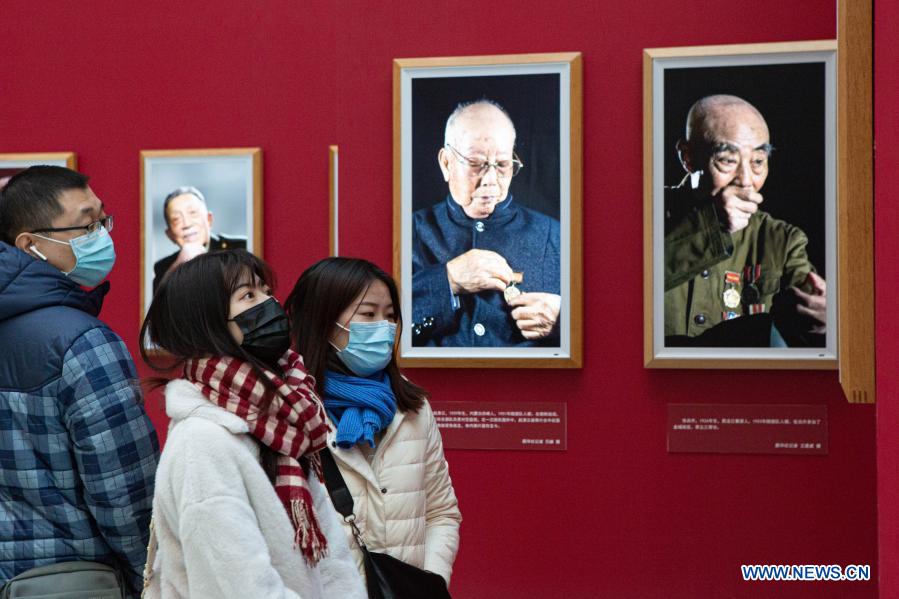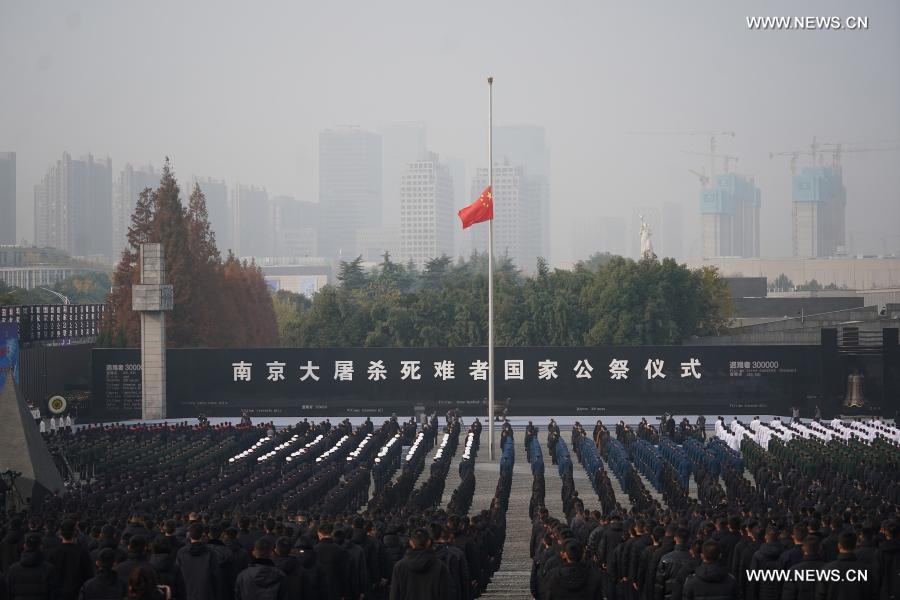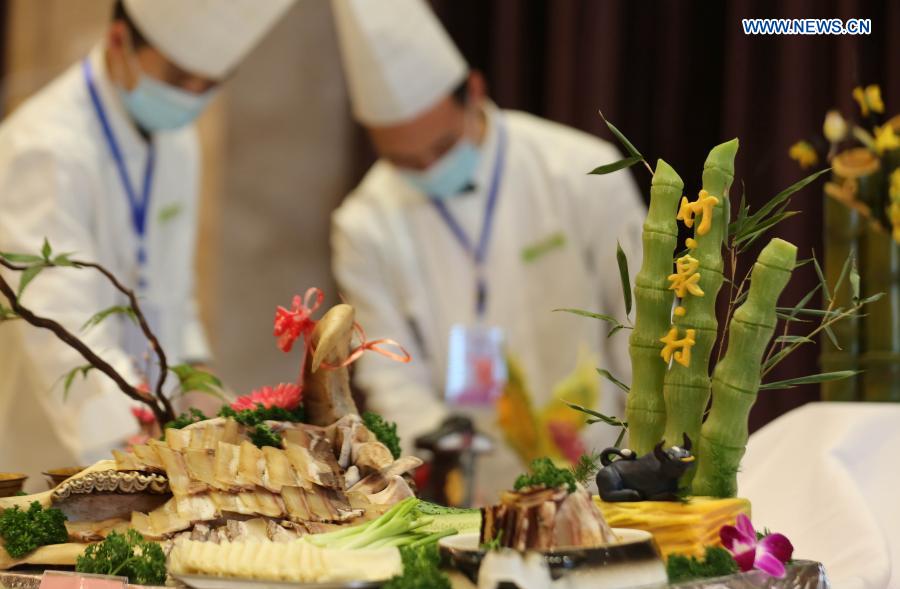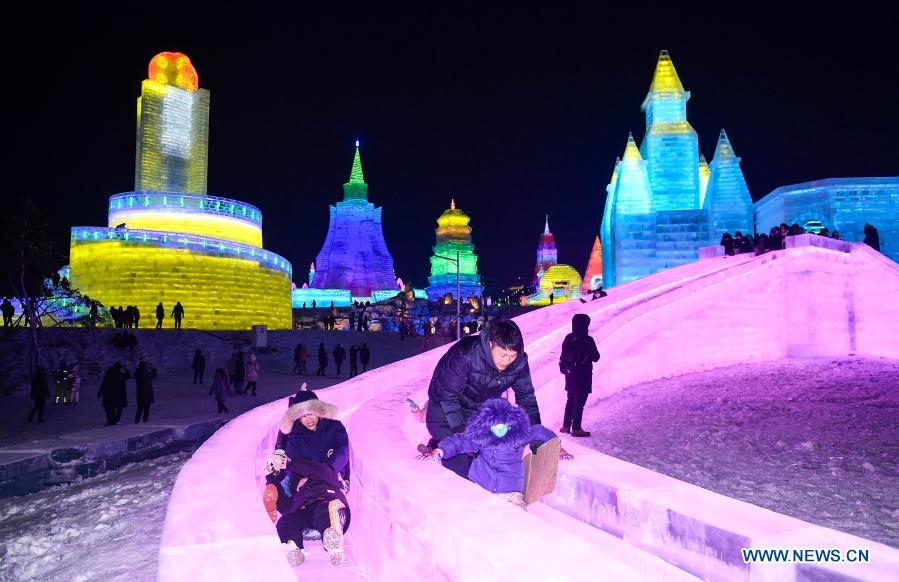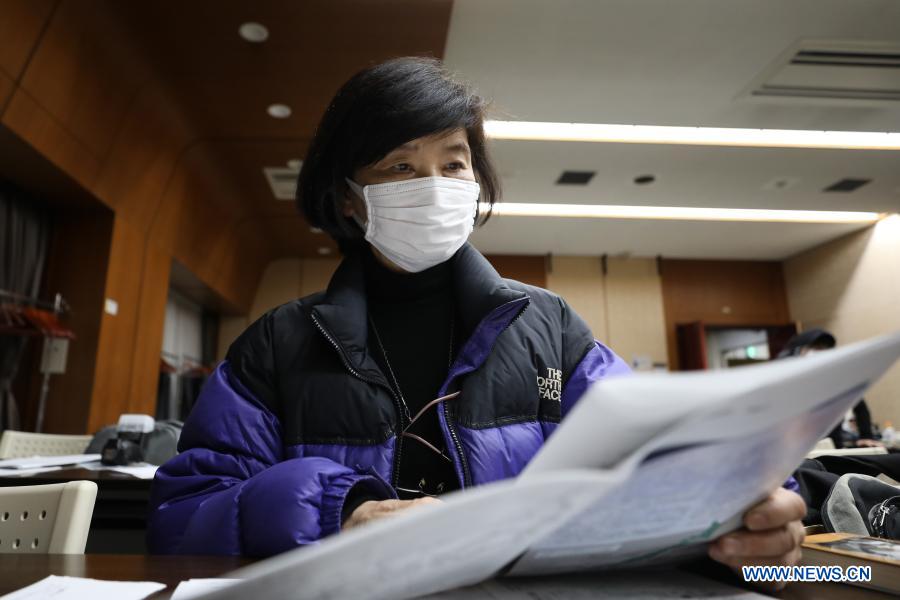
Etsuko Sato goes through materials about the Nanjing Massacre at the rally marking its 83rd anniversary in Tokyo, Japan, Dec. 13, 2020. Japanese civil groups held a rally here on Sunday to mark the 83rd anniversary of the Nanjing Massacre to mourn the victims and expose the brutal crimes of the Japanese invaders, calling on people to remember history and create a peaceful and friendly future. (Xinhua/Du Xiaoyi)
TOKYO, Dec. 13 -- Japanese civil groups held a rally here on Sunday to mark the 83rd anniversary of the Nanjing Massacre to mourn the victims and expose the brutal crimes of the Japanese invaders, calling on people to remember history and create a peaceful and friendly future.
As Japan is seeing record-high numbers of COVID-19 infections recently, the organizers asked participants to register in advance and leave contact information. More than 50 participants from across the country had their temperatures checked before entering the venue.
The Nanjing Massacre took place after the Japanese troops captured the city on Dec. 13, 1937. Over six weeks, they killed about 300,000 Chinese civilians and unarmed soldiers in one of the most barbaric episodes of World War II.
Each year, the organizers would invite relatives of Nanjing Massacre survivors and historical researchers to convey the truth personally at the testimony meeting. However, due to the ongoing coronavirus pandemic, a documentary about Nanjing Massacre survivor Shi Xiuying was shown instead.
Meanwhile, the organizers also showed another documentary about Ren Shigan, a former high school teacher who had long conducted field surveys to prove the authenticity of The Diary of Azuma Shiro, which discloses Japan's wartime atrocities against the Chinese.
At the rally, Japanese historical researcher Ryuji Saikudo gave a speech themed "Nanjing Massacre also existed in Shandong Province" based on the The Diary of Azuma Shiro and Ren Shigan's findings.
The participants watched the documentaries, listened to the speech and were shocked to learn about the tragic experiences of survivors of the Nanjing Massacre and the atrocities committed by invading Japanese troops in the city and elsewhere.
Hiroshi Tanaka, a member from the civil group "No more Nanjing Association", was born in 1937, the year when the Nanjing Massacre happened. The 83-year-old told Xinhua that he hopes the younger generation of Japan and China can think about the future by studying and remembering history.
"Dec. 13 was the day of the Nanjing Massacre. Although it is difficult to hold a rally this year because of the coronavirus outbreak, it is a major issue of how to remember important historical events, so we decided to hold the rally as scheduled," he said.
The war was gradually forgotten by the Japanese as the number of people who had witnessed it dwindled. Japanese right-wing forces have denied the Nanjing Massacre while some scholars and politicians have made statements that distort history. Meanwhile, the so-called peace education in Japan's textbooks significantly downplays Japanese aggression.
Etsuko Sato, who teaches in a high school in Yokohama and attended the rally every year for three years, felt it strongly. "Although I personally cannot directly repay the war crimes committed by my predecessors, I make it my mission to raise children who can maintain a peaceful society and live in peace with neighboring countries."
"Please allow me to apologize to the Chinese people for the crimes committed by my predecessors. It is my duty and obligation for the rest of my life to pass on these historical facts to the Japanese children," she added.
Lin Boyao, an overseas Chinese in Japan, used to attend the rally in Japan each year and flew to Nanjing to take part in the national memorial ceremony for the Nanjing Massacre victims. However, he did not make it this year due to the ongoing COVID-19 outbreak.
"I think it is more important to study the historical facts of the Nanjing Massacre and convey them to more people, especially the younger generation of China and Japan, so as to avoid a repeat of the historical tragedy," he said.

